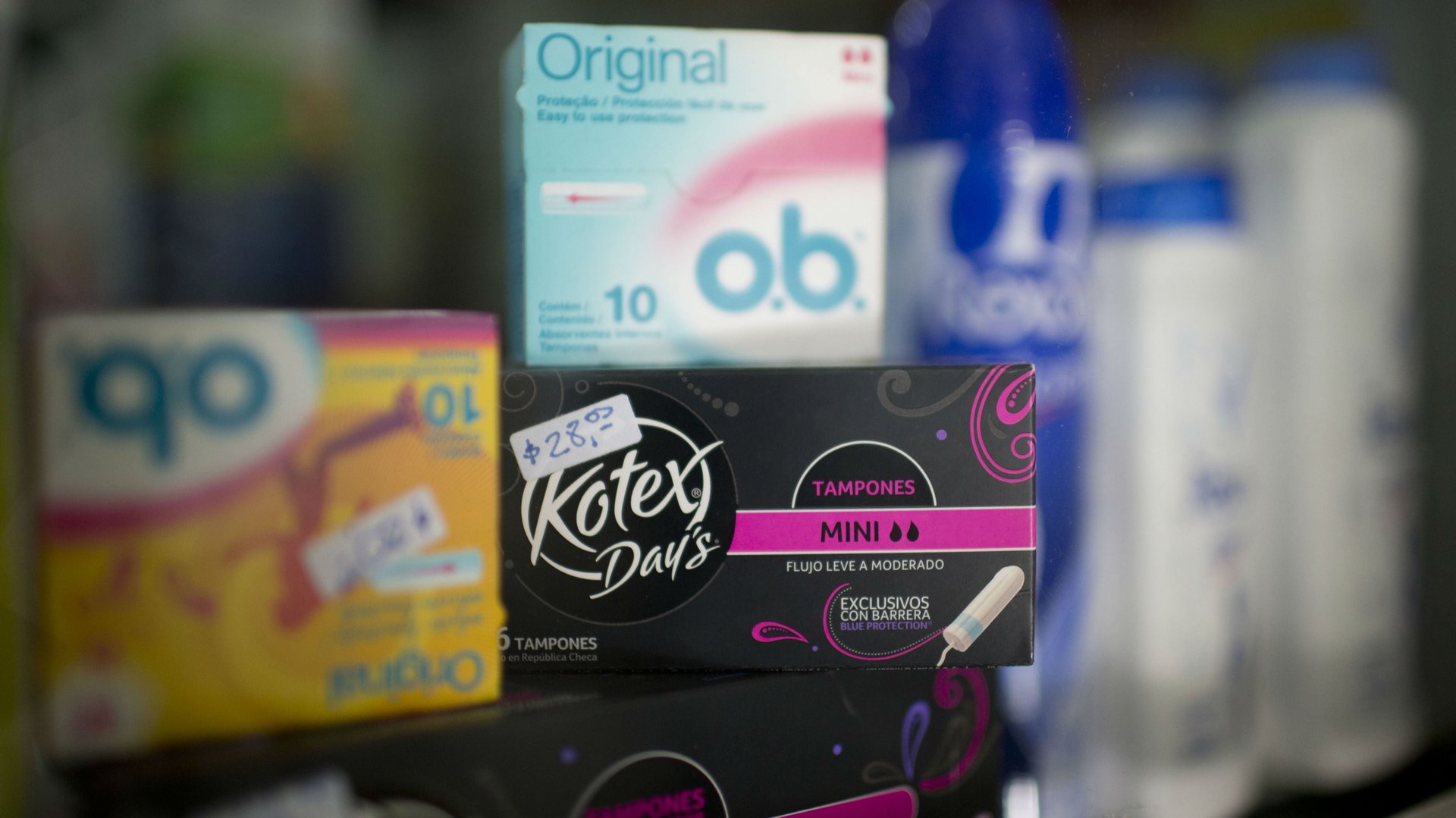Utah state legislators have voted to keep taxing tampons as a luxury
In as many as 40 US states, tampons and female hygiene products are taxed as luxury items. It’s something that’s stirred up a debate as of late—one that made it all the way to president Barack Obama, who suggested that the tax treatment of these items might have something to do with the fact that the duties are imposed by male-dominated legislatures.


In as many as 40 US states, tampons and female hygiene products are taxed as luxury items. It’s something that’s stirred up a debate as of late—one that made it all the way to president Barack Obama, who suggested that the tax treatment of these items might have something to do with the fact that the duties are imposed by male-dominated legislatures.
There’s ample evidence to support his theory. The very latest comes straight from the Utah statehouse, where legislators were considering the “Hygiene Tax Act,” which proposed to exempt tampons, sanitary napkins, and other such necessities from sales tax.
The legislation, sponsored by Democratic representative Susan Duckworth, was rejected 8-3 this week by Utah’s government house revenue and taxation committee—a panel that consists of 11 men (nine Republican and two Democrat), is chaired by a man (Republican), and has a male vice-chair (Republican).
The three votes in favor of the bill came from the two Democratic representatives and one Republican.
Before she presented the bill for the Feb. 10 vote, Duckworth told the Associate Press, “I’m going into an all-male committee, and I just don’t believe they’re going to have much sympathy”—and, indeed, she was right.
“I want you to know that I did promise the chair that I would not have props, so we’re not going to have props,” Duckworth’s presentation began—because, as everyone knows, tampons and pads are terrifying. (The bill also proposed exemptions for incontinence products, used by men and women both to manage a gender-neutral condition.) But the commission members, while recognizing during the hearing that “these are not optional items,” decided that only items that can be prescribed should be free of tax.
For those who see the tampon tax as an unfair levy against women, it isn’t just the vote tally that was disappointing. In her attempt to get the bill passed, Duckworth several times was compelled to note that the bill was not just for “feminine hygiene” products but hygiene products in general—perhaps in hopes that downplaying the importance that this bill would have specifically to women (who, she reminded the commission, represent 49% of Utah’s population) would help it pass.